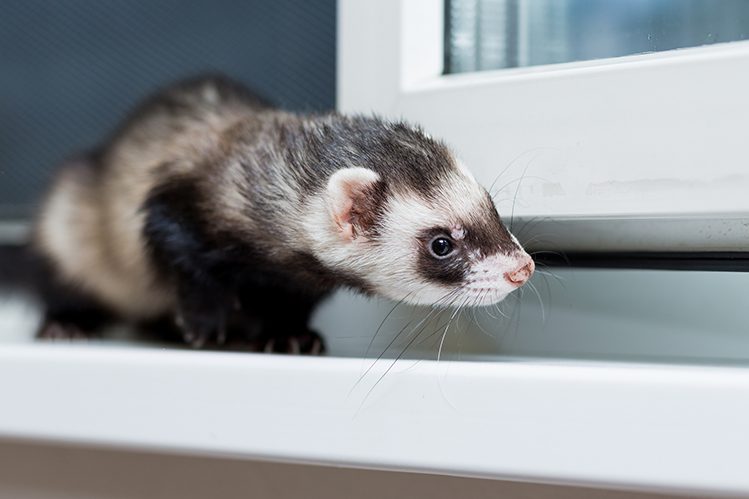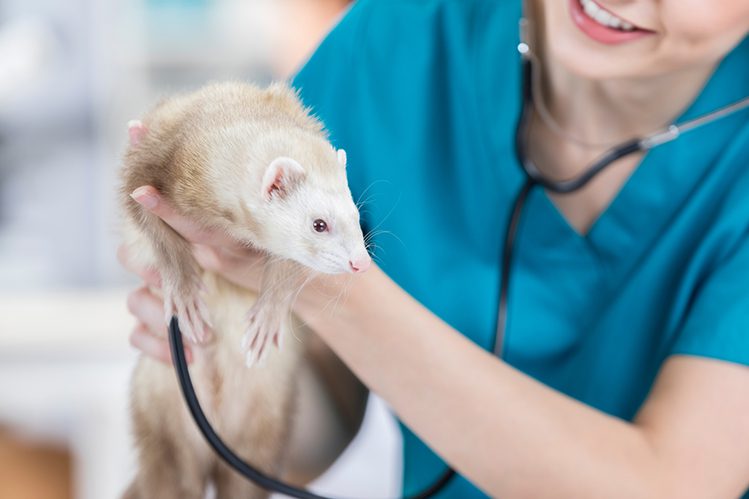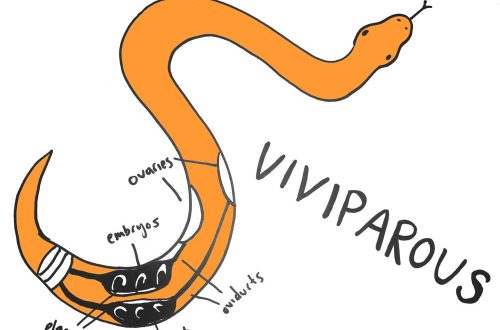
Diarrhea in a ferret: how to help a pet?
Ferrets are unusual pets, playful, inquisitive, energetic. But keeping a ferret requires knowledge of its health and needs. The gastrointestinal tract is considered the most vulnerable organ system in the body of these fragile creatures. We will tell you how to protect your ward from diarrhea, gastrointestinal disorders. And what to do if trouble still befalls the pet.
Contents
Diarrhea causes
Diarrhea is a gastrointestinal disorder characterized by frequent bowel movements and loose stools. Let’s name the common causes of this condition:
improper feeding, nutritional errors, unusual food: the diet does not meet the needs of the pet, the ferret ate something from the owner’s table, tried a new food;
infection is the most dangerous cause. An infectious disease cannot be expressed only in diarrhea, other symptoms are usually present;
parasites. Under their influence, the mucous membrane is damaged, intoxication of the body occurs;
poisoning is a life-threatening condition. Due to an oversight, the pet could get to your first aid kit or taste a new floor cleaner;
allergic reaction – a negative reaction of the body to household irritants, drugs, injections, etc.;
the presence of a foreign body in the gastrointestinal tract. The pet nibbled something, and the stubs of his trophy fell into the intestines;
stress. Receiving guests, going to the veterinary clinic and other everyday events can affect the condition of the pet.

The first symptoms of diarrhea
The first symptoms of diarrhea include frequent bowel movements, loose stools of an unhealthy color (may be mixed with mucus and blood), and a change in body temperature. If you touch the belly of the animal with both hands, you will feel that the belly is slightly swollen, tense, and painful.
If the ferret had loose stools once, and then everything returned to normal, then there is no reason for concern. However, it is important to start treating acute diarrhea immediately. Without treatment, acute diarrhea can lead to dehydration and loss of energy. The pet will become vulnerable to any external factors.
Pet treatment
In acute diarrhea, you should contact your veterinarian as soon as possible and follow his instructions. It is important to determine the cause of diarrhea: the treatment will depend on this. Tell your veterinarian in detail about your ferret’s diet, conditions, and recent behavior. To establish the cause of the ailment means to be able to prescribe effective treatment and quickly help the pet.
With diarrhea, you do not need to insist that the ferret eat something. But it is important to give him fresh water so that the malaise does not cause dehydration. If the pet refuses to drink, drink a little bit from a spoon or syringe without a needle.
In your home veterinary first aid kit, be sure to keep the sorbent recommended by your veterinarian in order to be able to provide first aid to your pet.
Often in the case of diarrhea, the veterinarian prescribes probiotics, they help restore the intestinal mucosa in the ferret. Probiotics are beneficial microorganisms that spread over the surface of the pet’s intestinal epithelium and prevent the growth of pathogenic bacteria. They work best in combination with prebiotics – this is food for beneficial microflora. Therefore, it is better to give the ferret symbiotic preparations (containing both), or purchase pre- and probiotics separately and give them at the same time.
If the cause of diarrhea is dietary errors, then the ferret, as a rule, quickly recovers.

Prevention of gastrointestinal disorders
- For a ferret’s digestive health, nutrition plays a key role. Remember that the lion’s share of the ailments of ferrets falls on the gastrointestinal tract.
Ferrets are carnivores and need a lot of protein. In addition, they have a sensitive digestive system, and many foods cause allergic reactions. That is why it is difficult for ferrets to balance the diet at home for ferrets. It is better to feed your pet with specialized complete food.
Monitor the conditions of the ferret in the house. We remove everything plastic, rubber and rubberized away so that the ferret does not decide to taste a new trophy: a rubber mat, slippers, a toy. The pet should walk around the dwelling only under the supervision of the owner. When you are not at home, the ferret should be in a special spacious cage.
Make sure that the playful animal does not want to chew on something inappropriate. Such a prank of your ward can lead to intestinal obstruction and subsequent surgery.
Keep your ferret’s teeth under control. If the veterinarian recommends pulling out a damaged tooth, it is better to do so, otherwise the matter may end in an intractable inflammatory process.
Regularly vaccinate your pet against major infections, treat parasites every three months. When the pet is three or four years old, his health will require increased attention from the owners. Metabolic processes in the body will slow down, so from now on, ferret owners need to be extremely careful with the digestive system. It is best to discuss the diet of such a delicate creature as a ferret with a veterinary nutritionist.
We wish your pets good health!





